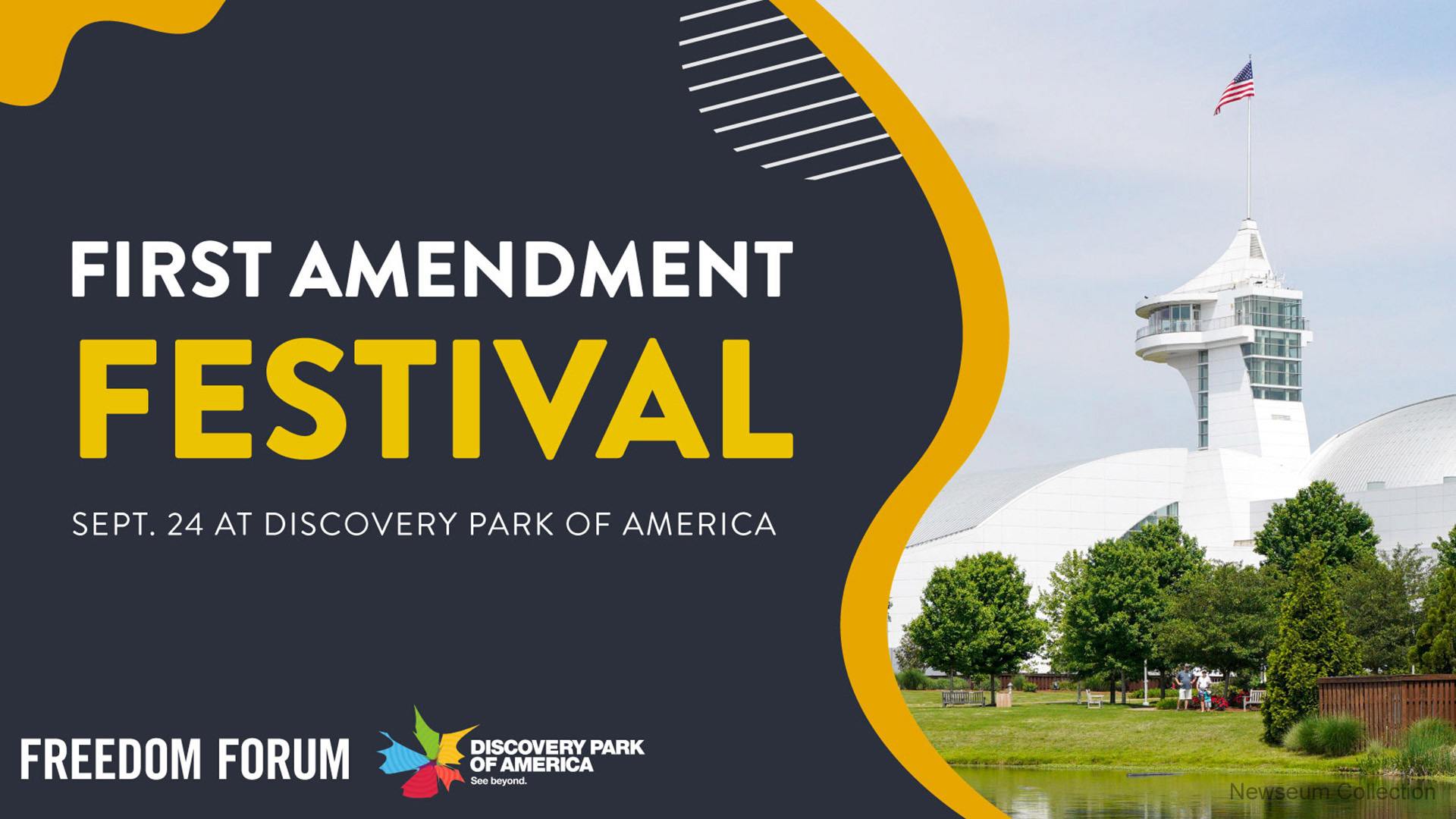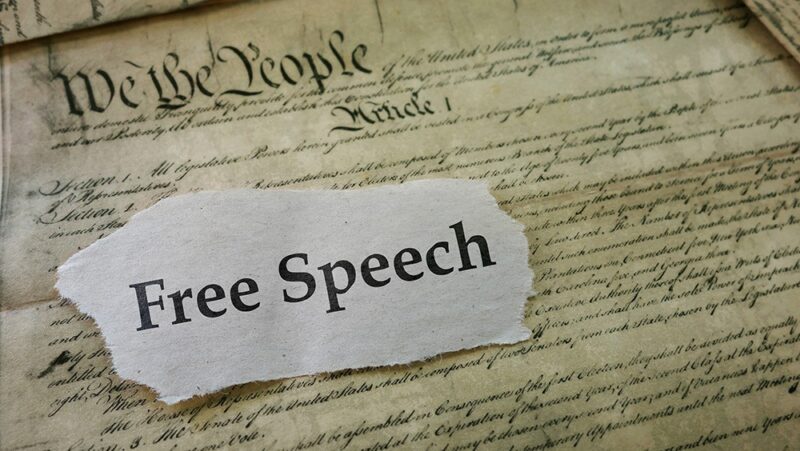First Amendment Festival Walk of Fame

These figures past and present – many with ties to Tennessee or the South – exercised and defended our freedoms!
Imam Ossama Bahloul
Imam Ossama Bahloul led the Islamic Center of Murfreesboro, Tenn., during a contentious 2010 campaign to expand the mosque, which had been part of the community since 1982. Some people in the Nashville suburb protested, and while several church building permits were OK’d, the mosque’s was denied. The U.S. Department of Justice sued on the mosque’s behalf and won, and the Islamic Center members got their place to pray. That victory reinforced the First Amendment’s protection for people of all faiths.
Johnny Cash
Johnny Cash rose to prominence in the rockabilly music scene in Tennessee. He opened concerts with “Hello, I’m Johnny Cash” followed by his song “Folsom Prison Blues.” Inspired by his Christian faith, Cash performed and recorded albums in several prisons in the 1950s, including Folsom. Never afraid to use his music to draw attention to the causes he supported, his 1964 album “Bitter Tears: Ballads of the American Indian” told the stories of Native Americans. The album’s single “The Ballad of Ira Hayes” tells the story of the Akimel O'odham Native American who was one of the Marines to raise the flag at Iwo Jima. Cash spoke of his appreciation for the First Amendment when performing his song “The Old Ragged Flag.” “I thank God for all the freedoms we’ve got in this country. I cherish them,” he said.
Manuel Duran
Memphis reporter Manuel Duran wrote about immigration policy. In 2018, he was arrested while covering a protest over immigration arrests in Memphis. An immigrant from El Salvador who was fighting for asylum, he was held for 15 months and faced deportation. In 2022, he won his asylum case. Duran continues to report for Memphis Noticias, a Spanish-language news outlet.
Colin Kaepernick & Tim Tebow
In 2011, Denver Broncos quarterback Tim Tebow knelt on the field to pray after scoring a touchdown. Reminding fans that football is “just a game,” Tebow used his platform to thank Jesus and spotlight charitable causes. Tebow’s practice of taking a knee in prayer after scoring a touchdown sparked internet memes that drew praise, imitation and ridicule. It spotlighted deep differences of opinion about going public with your religious identity.
In 2016, San Francisco 49ers quarterback Colin Kaepernick knelt during the national anthem to raise awareness of police brutality toward Black Americans. His act of protest drew criticism and support. Kaepernick’s protest became a flashpoint that catapulted racial injustice to the forefront of the national conversation. Most NFL owners and many fans derided him. Kaepernick became a free agent the next season, but no team hired him.
Helen Keller
Helen Keller was a renowned speaker and author best remembered as an activist for disabled people. A childhood illness left her blind and deaf, but she used her First Amendment freedoms to speak out for causes including women’s voting rights, which became law in 1920 when Tennessee became the 36th state to ratify the 19th Amendment. That same year, Keller co-founded the American Civil Liberties Union to defend First Amendment freedoms.
Dr. Mabel Ping-Hua Lee
Chinese American activist and religious leader Dr. Mabel Ping-Hua Lee moved from Guangzhou, China, to the United States when she was 9. At 16, she became one of the leaders of the famous 1912 Suffrage Parade in New York City. Lee became the first Chinese American woman to earn a doctorate in economics from Columbia University. She was director of First Chinese Baptist Church of New York City. Lee was a tireless advocate for the rights of women and her religious community, using the First Amendment to advocate for the passage of the 19th Amendment. But Lee, like many other Americans, would not gain the right to vote until the repeal of the Chinese Exclusion Act in 1943.
John Lewis
John Lewis was a renowned civil rights activist who later became a Georgia congressman. He used the freedoms of religion, speech, press, assembly and petition throughout his life, starting as a student civil rights organizer with sit-ins at Nashville lunch counters and Freedom Rides challenging segregated bus terminals in the early ’60s South. He spoke from the steps of the Lincoln Memorial during the 1963 March on Washington and was beaten as he marched peacefully for voting rights during 1965’s “Bloody Sunday” at the Edmund Pettus Bridge in Alabama. He served for more than 30 years in the U.S. House of Representatives, where he was known as the “Conscience of Congress.”
Dolly Parton
Dolly Parton is a superstar singer-songwriter, actress, theme park owner – and fan of the First Amendment. She funded research for a COVID-19 vaccine and sang about the importance of getting the shot at a critical point in the pandemic. Her Imagination Library charity supports literacy by sending books to kids every month. She’s sent more than 100 million books to nearly 2 million kids ages 5 and under. The First Amendment protects the right to speak out, sing and publish – and to listen, read and watch.
Elvis Presley
Elvis Presley’s blend of Black rhythm and blues and gyrating moves made him a world-famous rock star beginning in the 1950s. For Elvis, music and dancing were outlets for free expression. But his swinging hips were deemed so suggestive that his performances were banned in some places. In 1956, producers on the popular “Ed Sullivan Show” only filmed him from the waist up. After his censored appearance on television, people across the country discussed if that was the right thing to do. Artists who push boundaries receive strong protection from the First Amendment.
John Seigenthaler
John Seigenthaler began his journalism career as a reporter at The Tennessean in his native Nashville and worked his way up to editor, publisher and CEO. He briefly worked in government for the U.S. Attorney General’s office assisting the Freedom Riders, Black and white activists who took buses to Southern cities to protest segregated bus terminals. Seigenthaler was beaten unconscious with a pipe while trying to protect two Freedom Riders from a mob in Montgomery, Ala. He also was founding editorial director of USA TODAY. As a public servant and as a journalist, he championed First Amendment freedoms and free press issues.
Wilma Rudolph
Wilma Rudolph earned three gold medals in track at the 1960 Olympics in Rome. When she returned home, her Clarksville, Tenn., town wanted to hold a parade for her. She said she wouldn’t come if it was segregated. Her celebration was the city’s first integrated event. Three years later, she was tear gassed when protesting a local whites-only restaurant. Months later, the restaurant opened to Black customers. Her efforts helped get her town to change and not exclude Black members of the community.
Mary Beth Tinker
Mary Beth Tinker, her brother and a friend were suspended from their Iowa school in 1965 when they wore black armbands to class to protest the Vietnam War. They believed the school district’s punishment violated their First Amendment right to free speech. After four years of legal battles, the case ended up at the Supreme Court. The justices ruled for the students, saying that students don’t “shed their constitutional rights to freedom of speech and expression at the schoolhouse gate.”
Ida B. Wells
Ida B. Wells was born into slavery, orphaned and later became a journalist at the Memphis Free Speech and Headlight. After three friends were lynched in Memphis in 1892, she used her newspaper to campaign for race and gender equality. She left Tennessee after her newspaper’s building was burned down, but she continued to investigate and publish information about lynching and to advocate for civil rights and women’s rights.
Roger Williams
Roger Williams was a preacher who came to America in the early 1600s because he wanted to leave the Church of England. His beliefs were different than the church’s, and he had to leave England to practice his own faith separate from the government’s established religion. Banished from Massachusetts for advocating for freedom of conscience, he founded Rhode Island in 1636. He wanted the government to be separate from the church so all people could exercise their own religion freely – an idea that became part of the First Amendment’s ban on government establishing religion.
Oprah Winfrey
Oprah Winfrey was the first Black female news anchor at WLAC-TV (now WTVF-TV) in Nashville when she started her career. In 1986, she became the first Black woman to host a national TV talk show. Through TV, magazines and movies, she shares insights about social topics such as racism, addiction and parenting. She also is open about sharing her faith.
You!
No matter how big or small, the First Amendment is for all!
How can you use your freedoms to believe, speak, publish, gather and ask for change to be a First Amendment star?
How to Spot ‘Fake’ News: Tips to Detect Disinformation, Misinformation and Biased Content
18 Freedom of Speech Quotes You Should Know
Related Content
Here to top your best dad joke.


